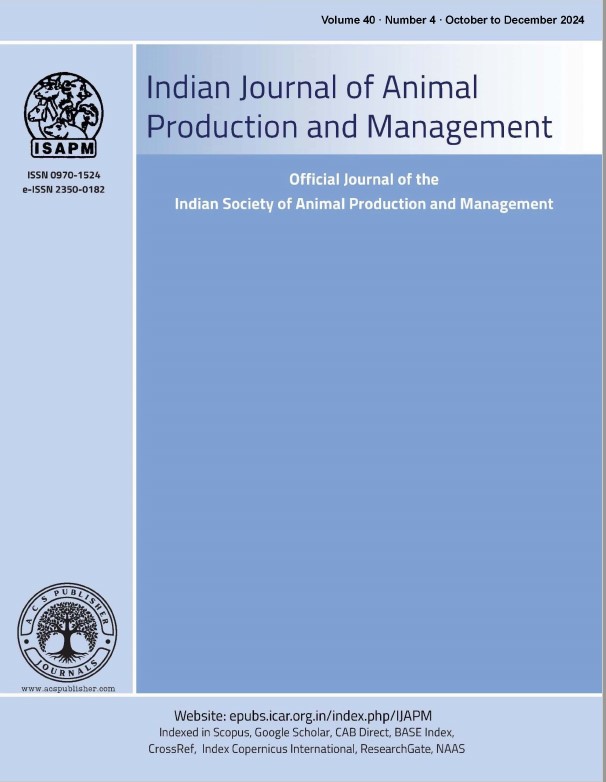HAEMO-BIOCHEMICAL STUDIES IN INDIGENOUS CALVES ON FEEDING AMMONIATED SOYBEAN STRAW
Keywords:
Untreated soybean straw, Treated soybean straw, Concentrate, Hybrid Napier, Blood parametersAbstract
The present study was carried out in the Department of Animal Husbandry and Dairying, Dr. Panjabrao Deshmukh Krishi Vidyapeeth, Akola, comprising duration of 90 days. Soybean straw was treated with urea at 1.0, 1.5 and 2.0 per cent level and covered with tarpoline, kept under shed for 28 days for incubation under anaerobic condition to allow for chemical reaction. The selected 20 calves were divided in four groups on the basis of nearness in BW and age, thereby each group comprised of five calves. Further, one calf from each group was allocated randomly to each treatment, namely untreated SBS (T1), 1.0 Haemo-biochemical studies in Indigenous calves % urea treated SBS (T2), 1.5 % urea treated SBS (T3) and 2.0 % urea treated SBS (T4). As a result, each treatment was replicated on five calves. It was found that, rate of increasing serum total lipids it appears that feeding of urea treated SBS was advantageous than that of untreated SBS. Thus in general, it appears that feeding of urea ammoniated SBS to calves had no adverse effect on haemo-biochemical blood profile.

